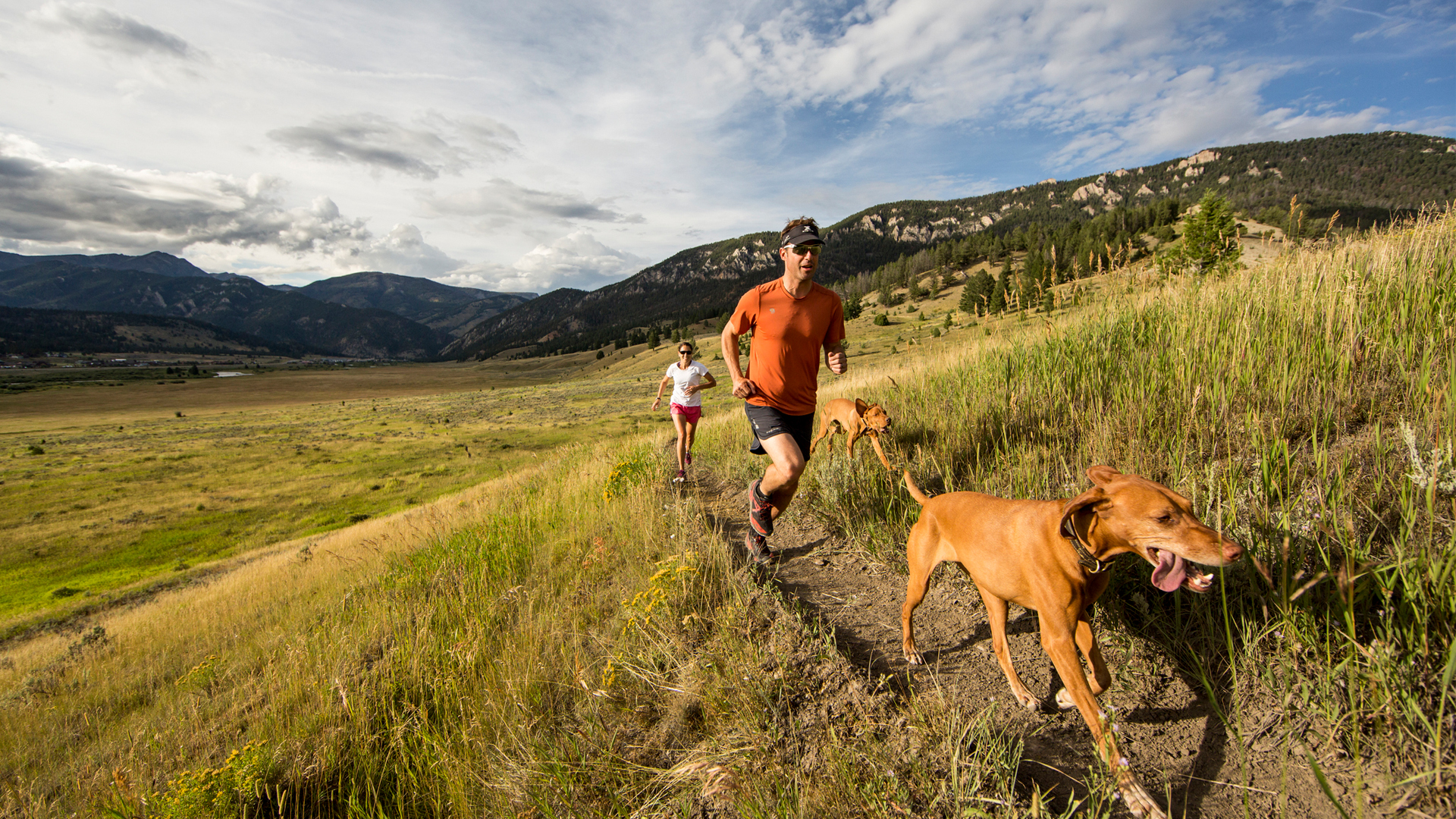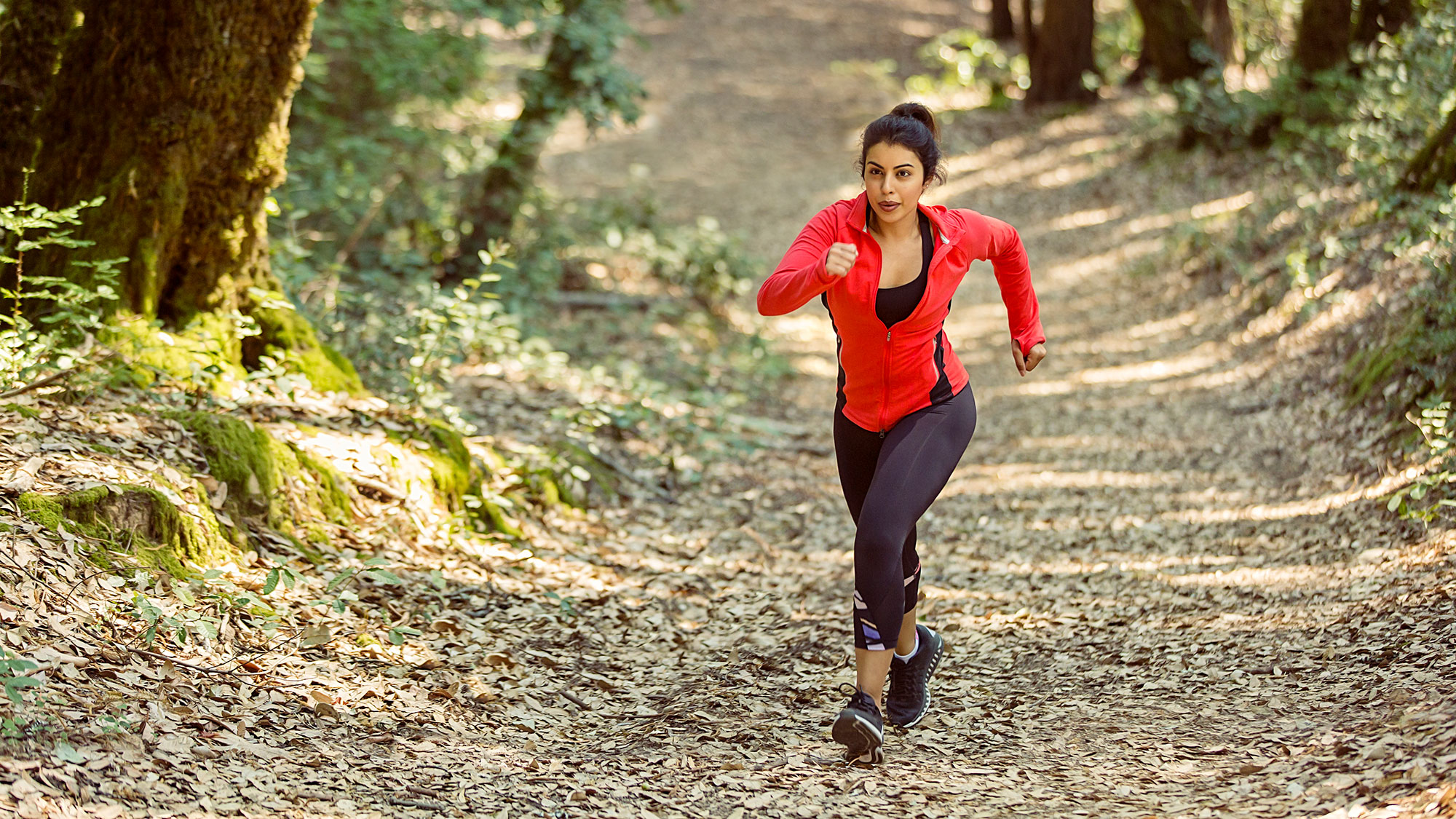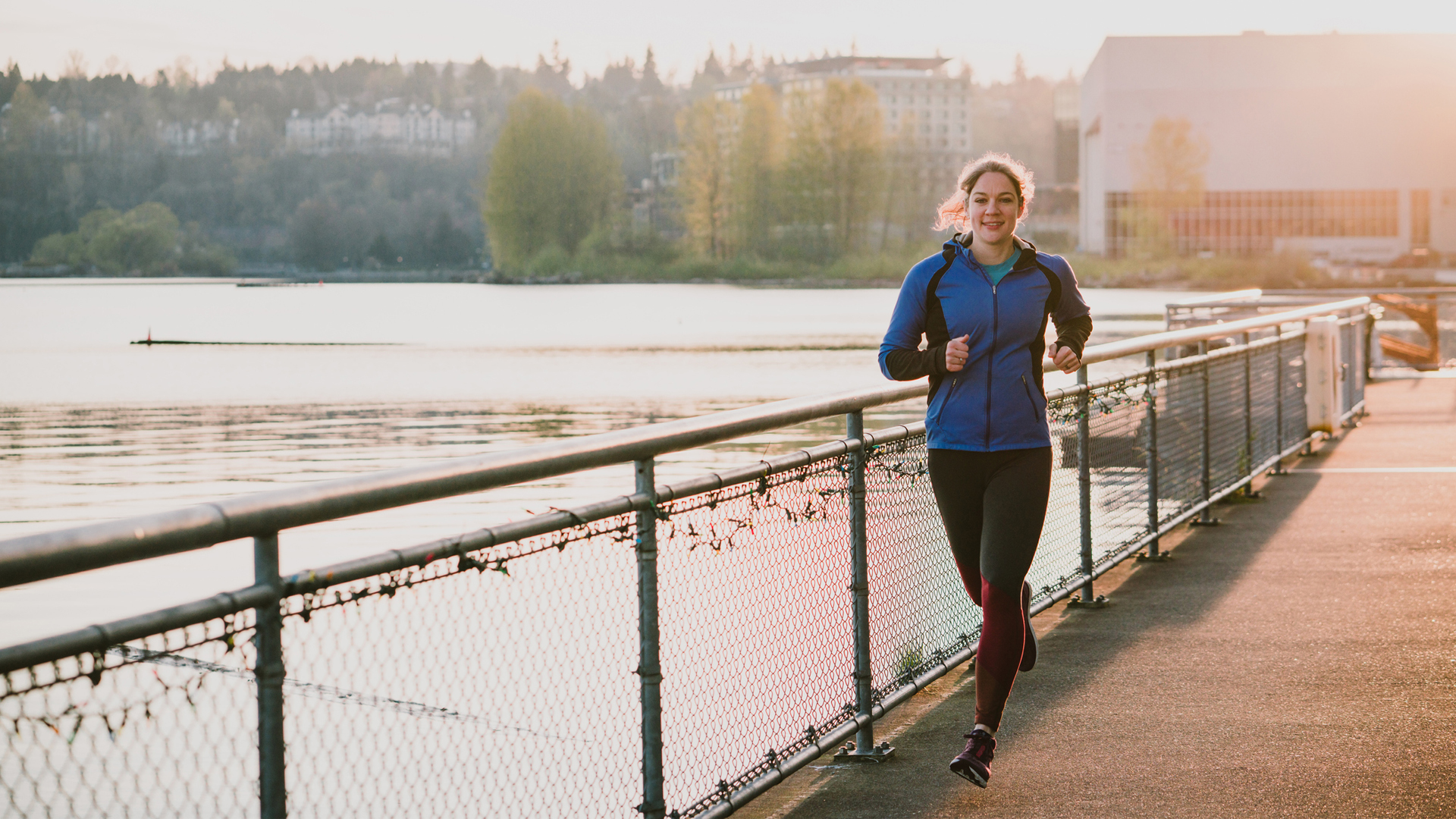Trail running vs road running: which is better?
Pavements or trails? Here's everything you need to know about trail running vs road running


Start your week with achievable workout ideas, health tips and wellbeing advice in your inbox.
You are now subscribed
Your newsletter sign-up was successful
From the location and kit, to the preparation time, there is much to consider when it comes to trail running vs road running.
Some runners are petrified by the thought of going off road, while many avid trail runners swear never to set foot on asphalt. Yet there are benefits and disadvantages to trail running and road running, and incorporating both into a training program can be a great way to add variety.
Running sessions of variable lengths and intensities, whatever the terrain, can improve mood and mental health, according to a systematic review in the International Journal of Environmental Research and Public Health. Having the right gear, such as the best running shoes for men or the best running shoes for women, will ensure you make the most of your running experience. Just remember that exploring cross-country routes will require different footwear, so take a look at the best trail running shoes currently available.
Trail running: Pros
For many people, thinking about running conjures up images of elite athletes smashing marathon records on the road. Running as an activity is commonly associated with the road, whereas the trail can be something of an unknown.
According to UKA running coach and podium-placing ultra-runner Brian Corcoran, there may be a misconception that trail running is for experienced runners.
“People think it's for really good runners but it is accessible to anyone,” he says. “It takes a bit more confidence to go but it gives back a lot more than the road can ever do.”

Studies, including one in the journal Leisure/Loisir, have shown that trail running gives participants a “sense of empowerment, bravery and tenacity”, which can be transferred to everyday life. According to Leisure/Loisir, women in particular find trail running increases job stress relief and has a positive impact on work productivity.
Start your week with achievable workout ideas, health tips and wellbeing advice in your inbox.
The sense of discovery is a big part of trail running and enables runners to explore their own backyard in new ways or get to locations inaccessible via road. The sense of adventure developed via trail running can lead to a greater variety of races, such as sky races, fell races, ultra- and multi-day events.
“It tends to lead to running longer races and really finding out where your limits are,” says Corcoran.
Trail running also forces runners to slow down and notice their surroundings because uneven, softer surfaces mean it's not possible to achieve the same speeds as road running. As a result, trail runners often refer to feeling more ‘in tune’ with nature.
“The best thing is the variety,” adds Corcoran. “Running on the road all year round you are likely to see the same things but on the trails it is different every time you go.”
Trail running: Cons
Running off road may not be better for injury prevention. One study published in Physical Therapy in Sport found one in four trail runners sustained running-related injuries in the 12 months prior to a sky race, and another study in Sports Medicine concluded there was no conclusive association between injuries and running on hard surfaces.
“There is a slight risk associated with trail running because the ground is more unstable underfoot. People are more likely to twist ankles,' says Corcoran.
But much of this is down to wearing the appropriate gear, which of course comes at additional expense.
“You rely on more specialist kit when trail running. You need trail shoes, a waterproof, something to carry water and food, and some way of charging your phone,” says Corcoran.

Trail running also takes a lot more planning and you need to be able to plot routes and navigate them with a GPS watch, phone or waterproof map. You also need to be keenly aware of sudden changes in weather if you are out for long periods of time. A one-hour road run could take twice as long on the trails as you climb over stiles and try to locate hard-to-find footpaths.
“Some people might feel more vulnerable because paths will be quieter and you are less likely to know where you are going,” says Corcoran. “You also need to consider what happens if you set out for a run that takes far longer than you expected and three hours later you are exhausted. You might need to rely on other people to come and get you if things go wrong.”
Road running: Pros
If you are short of time, going straight out of your front door or work building and doing a circular route on the roads is the most time-efficient way to get a run in. There is little preparation required and you’re likely to know the route and how long it will take.
“Road running is uniform, the surface is flat and it is the most easily accessible,” says Corcoran. “It's also faster than running on a trail so, in terms of motivation and getting quicker, it is better for the ego because it's easier to compare whether you are getting faster.”

It is also more straightforward to find the right kit and there are less accessories involved.
“Coming to running as an outsider, the industry is geared towards road running. When most people talk about running they mean road running,” says Corcoran.
He also argues that runners are less likely to get injured road running because it is easier to work through a range of speeds that counteract repetitive injuries. And if you like the social aspect of running, then most running clubs will do the majority of their sessions on the road; it will be more straightforward to find people to run with simply because road runners outnumber trail runners.
Road running: Cons
While running through woods, fields and mountain ranges can instil a feeling of freedom and being at one with nature, running through a crowded polluted city can have the opposite effect and become stressful rather than relaxing. Having to stop at traffic lights during a fast run or time trial can be galling and pedestrians and drivers are not always favorable towards runners.
If you are able to find a relatively quiet or uninterrupted road route then you may be in danger of running all of your sessions too hard and fast without enough recovery, which can lead to injuries. Trails force you to slow down but running on tarmac can do the opposite. Injuries among road runners are common, with Achilles, calf, iliotibial band, meniscus and hamstring injuries being the most prevalent.
Trail running vs road running: which is best?
For practical reasons road running may suit more people due to its convenience and ease of access, but if you are looking for a more varied experience with a bit of adventure thrown in then trail running is the best option. However, there is no reason why you have to stick to one or the other. Whether you are a social runner or training for a race, blending trail running and road running gives you the best of both worlds.
Check out our beginner’s guide on how to get into running for expert-approved tips, as well as our feature on, is running bad for your knees?
Lily Canter is a freelance money, health and lifestyle journalist with more than 20 years' experience. She writes about fitness for Runner's World and Trail Running magazines and focuses on personal finance for Yahoo! Finance UK, Metro, The Guardian, and the Mail on Sunday. In her spare time she is an ultra-runner, canicrosser and running coach. She also co-hosts the award-winning podcast Freelancing for Journalists.
